
HORIST: Good Trump vs. Bad Trump
Because of the east coast elitist liberal media’s obnoxious, unprofessional, distorted, biased and dishonest ad hominem attacks on President Trump, administration officials, Republicans in general, conservatives specifically and millions of Americans who support the policies of the aforementioned, my commentaries have generally been of a defensive nature in terms of the aforementioned. On the other hand, I have consistently expressed my disdain for the presidential personality and persona.
Most would agree that Trump is not presidential in ways that we normally think of presidents. In some ways, this is a refreshing departure from the norm. He has come to Washington with a mandate to upend a long established corrupt bipartisan establishment that has become an American aristocracy – the swamp as he has labeled it. This includes most of the monolithically obstructionist Democrat Party, some go-along Republicans and that enormous increasingly powerful bureaucracy that some refer to as the “deep state.” Because this latter group is beyond electoral accountability, they arguably represent the greatest threat to the republic.
On the other hand, President Trump is his own worst enemy. This is the unconventional president who engages in petty disputes, sophomoric name calling, excessive egotistical behavior and statements of dubious accuracy, to put it mildly. He provides his political adversaries with sufficient grist for their adversarial media mills.
As he moves forward with anti-liberal swamp draining policies, the press ratchets up the attacks to the point of questioning the president’s very sanity in clinical terms. Correction, not “questioning,” but offering up unprofessional armchair diagnoses as news analysis. In many ways, their obsessive attack on his personality is a diversionary tactic designed to conceal their contempt for his otherwise popular conservative appointments and policies. They cannot defeat Trump based on policies. It is those policies that got him elected despite his pugnacious personality – my vote included in that category.
While every president has the bully pulpit, it is not necessary or even beneficial to be a bully. In many of his communications, Trump exhibits the personality of a street thug – full of threats, name calling and braggadocios statements that often lack a factual foundation. They report all this as “playing to his base,” which itself is an arrogant insult to people who support Trump based on policy. Even many of his most ardent supporters fault Trump on style and cringe at his tweets.
Trump came to office with the reputation as a brand master and the impresario of optics. He has proven to be quite the opposite. He has not only failed to advance his political brand, but proven to be the proverbial bull in the optics china shop. This is a president who, in my early judgment, would befuddle his critics and grow his fragile public support base. He could well have routed the liberal establishment, retreating them into the corner of political irrelevancy – a place to which the voting public has been assigning left wing politicians and all their big government policies since 2010.
Trump could have grabbed that wave and been enjoying favorable polling numbers above the 50-point meridian. The failure to achieve such a goal rests solely on the President’s shoulders.
Many saw benefit in the fact that Trump was never a professional career politician, but rather a businessman. This general description fails to take note of a significant fact. Trump was never the head of a broadly-based corporation in which he rose from the ranks. He was the head of a sole proprietorship that he inherited from his father. Yes, he grew the company, but it was always his and his alone. His opinions were synonymous with corporate decisions. He was the boss.
That experience is not necessarily compatible with being the chief executive of the nation, where one must lead by consensus and deal with a complex array of power centers – not just those other two branches of government, but even within the Executive Branch itself. A president can be strong, powerful and determined, but he cannot run the country from the Oval Office with an autocratic micromanagement strategy – a lesson President Carter learned too late in his incumbency to save his presidency.
Trump’s business experience has led him to believe he could run the White House like his family business – even to the point of making his children and in-laws his key advisors. This was especially problematic since his closest family advisors shared his inexperience in both executive public office or in operating a broad-based shareholder corporation – an experience closer to national chief executive role.
To his credit, Trump seems to have made very good appointments to carry out is anti-establishment swamp draining agenda. Even as he is too often bogged down on needless and avoidable controversies, much of the policy reforms he articulated are being implemented by his various appointees. While the mantra of the press is that Trump is achieving nothing, his administration is doing a lot to upend and replace the liberal policies of past decades – especially the very liberal Obama years.
In some ways, his advantage in accomplishing these goals has been the myopic and obsessive attention his media critics have placed on this personality and petty issues of the day – a slurred word in a speech, how he gets the wrinkles out of his suits or number of Diet Cokes he drinks. All these and more are inflated and spun to the level of national crisis.
But, it is also true that Trump’s major obstacles to personal success and high approval ratings are style and personality. It is too pugilistic and egocentric. He destroys his own credibility with statements that can only be described as gross exaggerations and misrepresentation of facts.
Despite his reputation as a salesman, Trump has proven himself to be perhaps the worst salesman in his administration. This is compounded by the fact that his ego drives him to take the center stage as the principal salesman when others can do a much better job. Why is he such a poor salesman?
A major part has to do with his ego. Trump offers himself up as the savior of a downtrodden public. He and only he will save the nation. He fails to understand that the strength of America is the collective goodness of the American people. One of President Reagan’s strengths was that he always put the American people out front. He was simply the instrument of our nobility.
Trump’s ego has consumed too much of the oxygen in the political atmosphere – with public debates of crowd size and endless reminders of his election victory. He wallows in tasteless self-praise – often exaggerated self-praise – to the detriment of more important issues – issues that would actually put him in a better light. It is no small irony that it is his obsessive promotion of his own importance is precisely what diminishes his stature and obfuscates is accomplishments.
Trump also has an unfortunate tendency to say things that are almost right, but subject to interpretation – giving both supporters and detractors ample opportunity to define his meaning. After Charleston, he said there were good people and bad people on both sides. He was correct since many of the demonstrators were not white supremacists and not all the counter-demonstrators were bent on violence, but in the way he expressed it there seemed to be an endorsement of the bad folks on one side. His calling out violence on both sides resulted in critics seeming to claim that, based on the cause, there is such things bad violence and good violence – or at least justifiable violence.
Trump is not a person to can take criticism – constructive or otherwise. His adherence of striking back at even mild admonitions has him seemingly at odds with everyone at one time or another. While strident public discord has been a growing cancer in our public discourse, Trump has given it a shot of adrenalin.
Because of his personality, Trump receives very little credit for his significant accomplishments as President of the United States. It would seem that 2018 may be another referendum on good Trump versus bad Trump – whether his policy accomplishments and future potential will trump his flawed personality, as it did in 2016, or whether the unrelenting attacks on his personality will take hold.


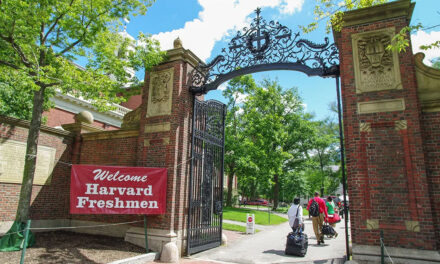

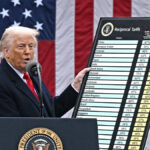

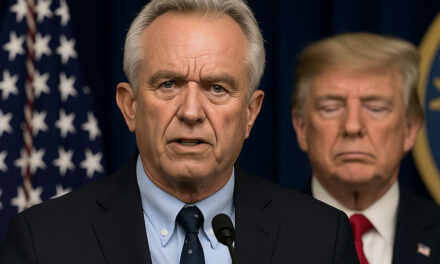




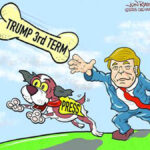
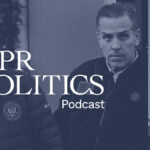










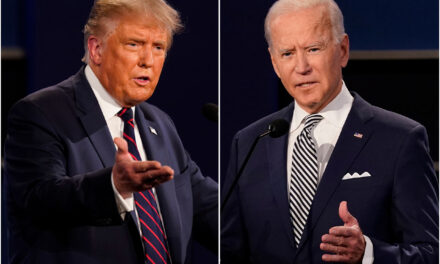

HORIST IS A VERY CONFUSED CRITIC, LETTING HIS EMOTIONS OVERPOWER THE COLD FACTS.